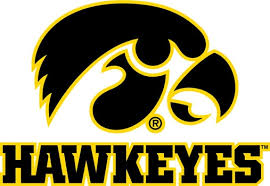1
1: Give an example of how at least one criticism of assessment has led to improvement of assessment. how do you see this playing our in your future role as a counselor?
A period of criticism developed during the 1960s and 70s due to societal factors such as the civil rights movement. One example of a criticism during this period of assessment is a criticism toward intellectual assessments that accused selection tests of choosing workers that fit the organization’s idea of a good employee rather than the best worker for the position. These tests were also criticized of oppression and damaging children through labeling at a young age. The critiques pointed out the use of tests to be stereotypical and biased which lead to a re-examination of the assessments. The reevaluation of the tests led to a movement that allowed tests to become unbiased and culturally fair. The tests are now evaluated by a number of people with a variety of expertise to be sure mistakes like these aren’t made again.
In regards to the future, tests will never be perfect and people will continue to critique them. Critiques allow test developers and users to continue to evolve assessments as best practice evolves. As I continue into the counseling field, I need to be aware of the stereotypical nature that assessments could potentially have. For example, I need to be aware of placement tests and how they could affect different groups within a school. Advanced placement tests and courses can be used to separate students by more than just their academic performance. Keeping an eye on disaggregated data trends will allow me to know which tests could be beneficial or harmful to my school and how I can use them to advocate for my students.
- The Protection of Pupil Rights Amendment of 1978 (PPRA) requires surveys given to minor children are made available to the parents if they include any information from eight areas. List these eight areas of information. What are some implications of this for your future role as a counselor?
According to Erford (2013), the Protection of Pupil Rights Amendment of 1978 (PPRA) requires parents have availability to review if their child is given survey containing information that includes: political beliefs of student or parent; mental and psychological problems of student or family; sex behavior/attitudes; illegal, anitisocial, self-incriminating, or demeaning behavior, critical appraisals of other individuals, legally recognized privileged relationships (lawyers, pastors, etc.), religious beliefs and practices of student or family, and income not required to determine participation in programs. Surveys or other instructional material that include any of these topics are available for parents to review by request.

There are implications of the PPRA in my future work as a school counselor. As a school counselor, the majority of people I will be assessing are children which means that I will have to take PPRA into regard when wanting to give surveys. It is important for me to become familiar with the topics that are regulated by this amendment so that I can be aware of the who needs to, and has access to, this type of information. I also need to know when I will be in communication with parents, what their rights are, and when consent is needed from them. These can be found through the Protection of Pupil Rights Amendment as well as the Family Educational Rights and Privacy Act. As a school counselor, I need to be knowledgeable about both of these acts in order to continue to be ethically sound and aware.
- Describe the purposes of ethical standards. Can you envision a situation in your future work where application of ethical standards pertaining to assessment may be especially useful? Please focus this question of your future work setting, whether that is a school, a clinic, or a rehab services setting.
The purposes of ethical standards are to provide guidelines for professional behavior. These guidelines are meant to educate on ethical behavior, provide protection to professionals, provide accountability, and to serve to improve professional practice. Ethical standards also act as education for the public in that they know what to expect from professionals. Ethical standards are in place for professionals, such as counselors, to make ethical decisions based on models. A situation that could occur in my future work setting in regards to ethical standards would be the referral piece of my work. As a school counselor, I cannot diagnose or perform assessments that would lead to a diagnosis. This is important to know because there are some ethical standards pertaining to assessment that need to be followed in regards to referral. Appropriate assessment tools need to be used and, if I am referring to a third party, I need to “provide specific referral questions and sufficient objective data about the client to ensure that appropriate assessment instruments are utilized…” (E.6.b). This is especially important when working with culturally diverse populations as well because it can be easy for assessments to become biased and then, not useful. The referral process requires that I am still held responsible for the ethical practices of assessment and use of appropriate instruments. I find this particularly relevant because school counselors need to consult ethical standards when determining if we should assess or refer. I find it essential when referring to be sure that we are still doing what is best for the student—one example being that we provide information for the third party to choose an appropriate assessment instrument.
